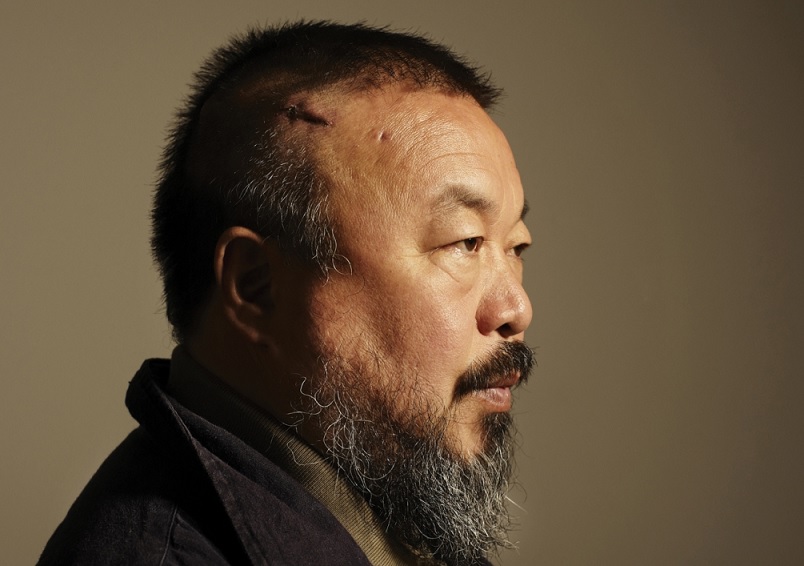
Ai Weiwei
Ai Weiwei is one of the world’s most prominent contemporary artists and a renowned political activist. After his training at the Beijing film academy, his work originally found favour with the Chinese authorities. Between 1981 and 1993 Ai pursued studies in English and creative arts in the United States, where he befriended the Beat poet Allen Ginsberg. After his return to China in the nineties, his work started to address issues of corruption and human rights abuses in China and abroad. The Chinese government censured and tried to silence him by imprisoning him, taking away his passport and repeatedly destroying his studio. Ai eventually moved to Berlin, where he undauntedly continues to work on his art.
Ai Weiwei produces work in a variety of media, from video and photography to performance art and light installations, and on a variety of themes, often with a strong political message. One of his most famous and controversial works is Citizens’ Investigation: a large-scale critical work on the government’s inadequate response to the 2008 earthquake in Sichuan, visualized by a wall with 9,000 brightly coloured children’s backpacks and a list of names of the young victims. Other well-known works include Sunflower Seeds (2010), a floor covered in 100 million hand-painted porcelain sunflower seeds; The Bird’s Nest (2005-2008), the stadium he designed for the Beijing Olympics; and his projects addressing the plight of refugees, such as #SafePassage and the documentary Human Flow (2017).
Ai received numerous honorary doctorates and awards for his moral courage and his art. In 2012 he was awarded the Václav Havel Prize for Creative Dissent, in 2015 Amnesty International named him ‘Ambassador of Conscience’, and Foreign Policy and TIME count him among the most influential global thinkers.
Published in
Nexus 82
Nexus 82
The World as It Is
The World as It Is
Speaker at

Lecture